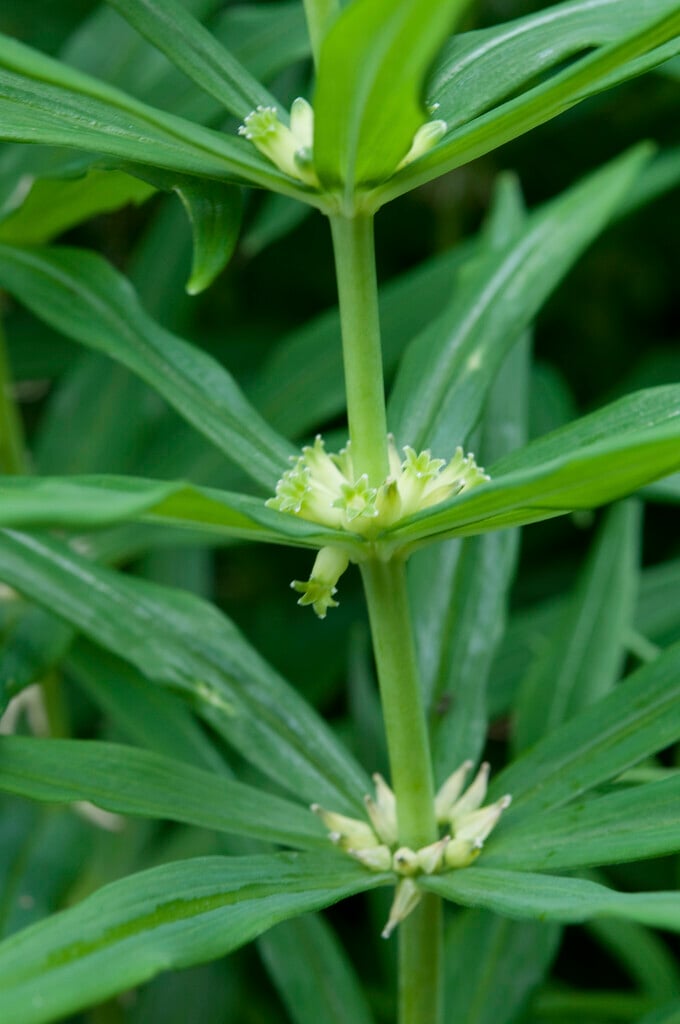Polygonatum verticillatum
whorled Solomon's seal
A rhizomatous perennial with erect stems up to 90cm tall, bearing lance-shaped, stalkless leaves, mainly in whirls, sometimes opposite. Bearing 1-4 pendant tubular, greenish white flowers in the leaf axils, from late spring to mid-summer and followed by small, red berries.
Size
Ultimate height
0.5–1 metresTime to ultimate height
2–5 yearsUltimate spread
0.1–0.5 metresGrowing conditions
Moisture
Moist but well–drainedpH
Acid, Alkaline, NeutralColour & scent
| Stem | Flower | Foliage | Fruit | |
| Spring | Green White | Green | ||
|---|---|---|---|---|
| Summer | Green White | Green | Red | |
| Autumn | Green | Red | ||
| Winter |
Position
- Full shade
- Full sun
- Partial shade
Aspect
East–facing or North–facing or South–facing or West–facing
Exposure
Sheltered Hardiness
H7Botanical details
- Family
- Asparagaceae
- Native to GB / Ireland
- Yes
- Foliage
- Deciduous
- Habit
- Clump forming
- Potentially harmful
- Harmful if eaten. Wear gloves and and other protective equipment when handling TOXIC to pets if eaten (dogs) - see the HTA guide to potentially harmful plants for further information and useful contact numbers
- Genus
Polygonatum are rhizomatous herbaceous perennials with erect or arching stems bearing glossy, elliptic leaves and pendent, tubular or bell-shaped flowers, sometimes followed by black or red berries
- Name status
Correct
- Plant range
- Eurasia
How to grow
Cultivation
Grow in any fertile, humus-rich, moist but well-drained soil in full sun, partial shade or full shade
Propagation
Propagate by division in spring
Suggested planting locations and garden types
- City and courtyard gardens
- Cottage and informal garden
- Flower borders and beds
Pruning
Cut down to ground level in late autumn
Pests
May be susceptible to slugs and solomon's seal sawfly
Diseases
Generally disease-free
Love gardening
Sign up to receive regular gardening tips, inspiration, offers and more
View our Privacy Policy
Get involved
The Royal Horticultural Society is the UK’s leading gardening charity. We aim to enrich everyone’s life through plants, and make the UK a greener and more beautiful place.
